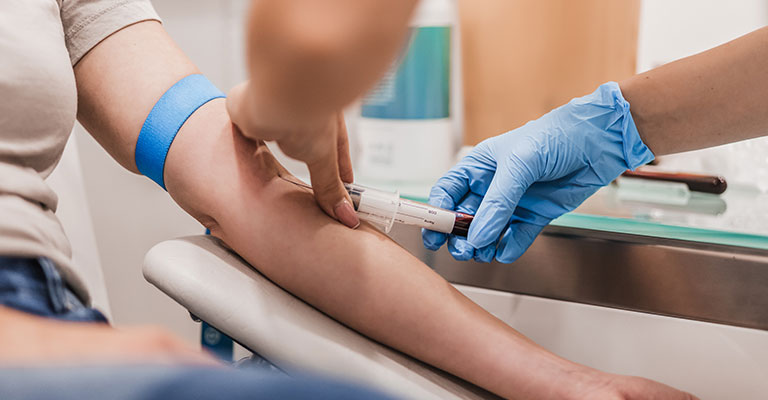Updated by the Progyny Clinical Team — June 2025.
Estradiol, a form of estrogen, plays a key role in fertility. It supports ovulation, thickens the uterine lining, and helps maintain overall reproductive health.
A blood test to measure estradiol is one of the most common fertility assessments. Why?
- To evaluate ovarian reserve: When tested on day 3 of your cycle, estradiol levels help assess how well your ovaries may respond to stimulation. This is one part of evaluating ovarian reserve, often used in combination with tests like FSH, AMH, and ultrasound.
- To interpret FSH levels accurately: Estradiol can suppress follicle-stimulating hormone (FSH). If your FSH appears normal but estradiol is high, it may be artificially lowering FSH, potentially masking signs of diminished ovarian reserve.
- To monitor fertility treatment response: If you’ve started fertility medication, estradiol levels help determine how your ovaries are responding to stimulation.
What do estradiol levels indicate?
High estradiol levels, especially early in the cycle, may suggest reduced ovarian reserve or artificially low FSH levels. Both can impact how well you respond to fertility treatments and your chances of pregnancy. In rare cases, very high estradiol may be linked to an ovarian tumor or hyperthyroidism.
Low estradiol levels may indicate hypothalamic or pituitary dysfunction. People with low body weight, disordered eating, or those who engage in high levels of endurance exercise may also have low estradiol levels.
Estradiol in fertility treatment
Estradiol is often used in treatment protocols. Estrogen pills, patches, suppositories, or injections can support the endometrial lining, especially in people with a thin uterus lining.
- Estrogen may be prescribed before a frozen embryo transfer to prepare the uterus for implantation.
- In IVF, estrogen “priming” protocols may be used prior to stimulation to improve ovarian response or support a more predictable cycle.
Summary
Estradiol plays a vital role in reproductive health and is a key hormone measured during fertility evaluations and treatments. Testing estradiol levels helps assess ovarian function, interpret other hormone levels like FSH, and monitor response to fertility medications.
Understanding your estradiol levels can provide valuable insight into your reproductive health and guide you to your next steps.
Progyny is here for you. Please contact your Progyny Care Advocate for support.
Disclaimer: The information provided by Progyny is for educational purposes only and is not medical advice. Always consult a qualified healthcare provider for medical guidance.
